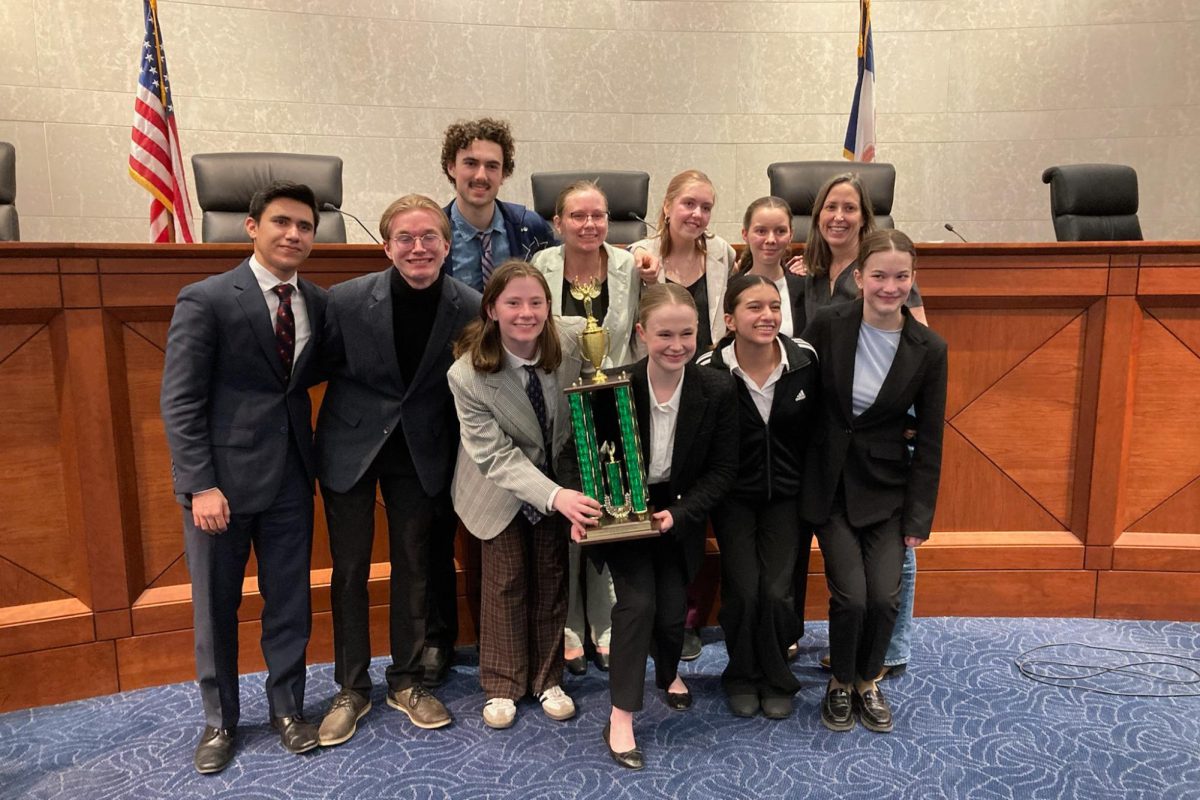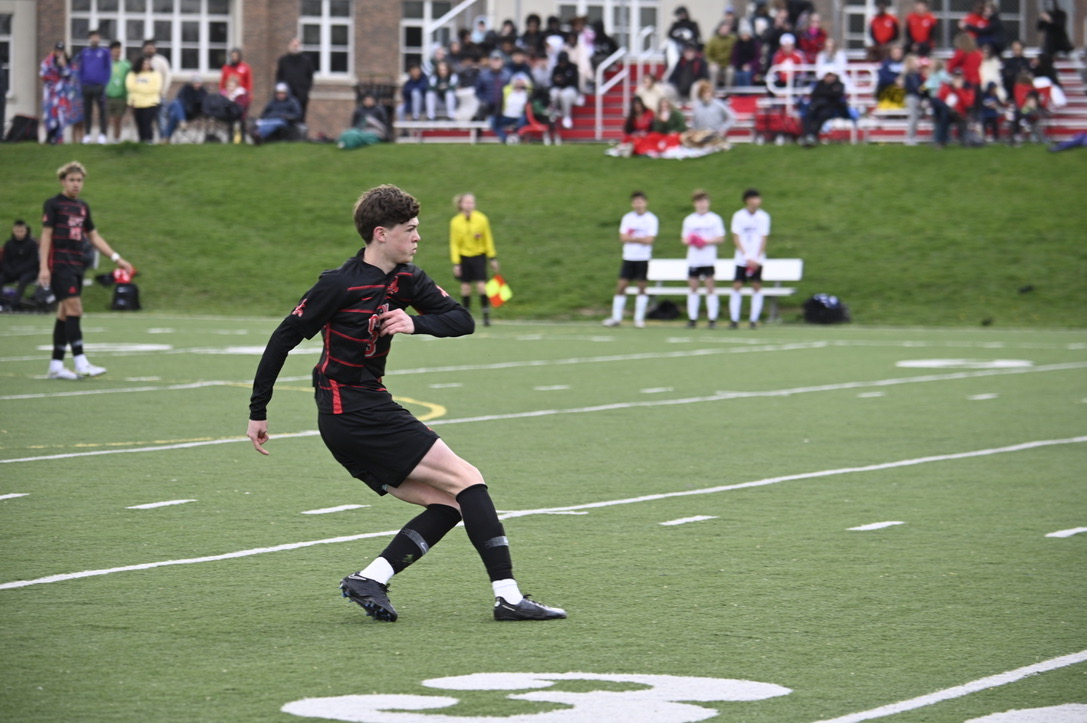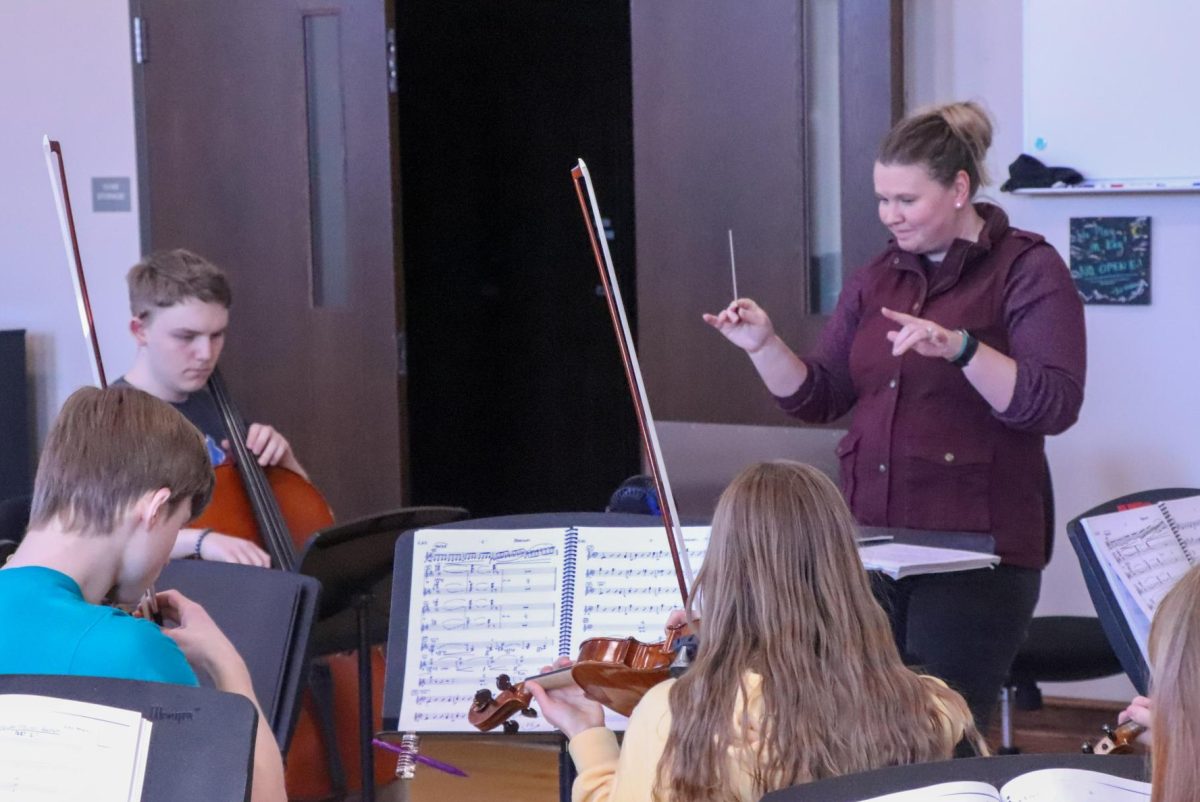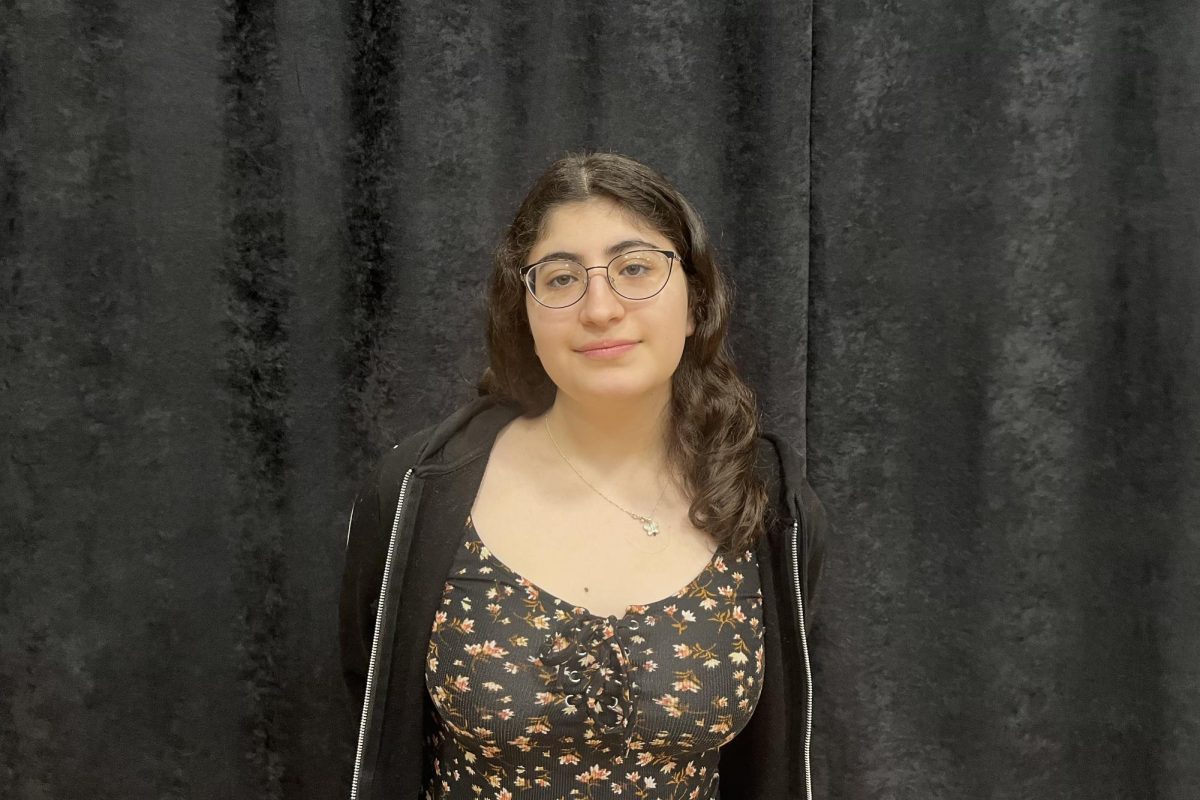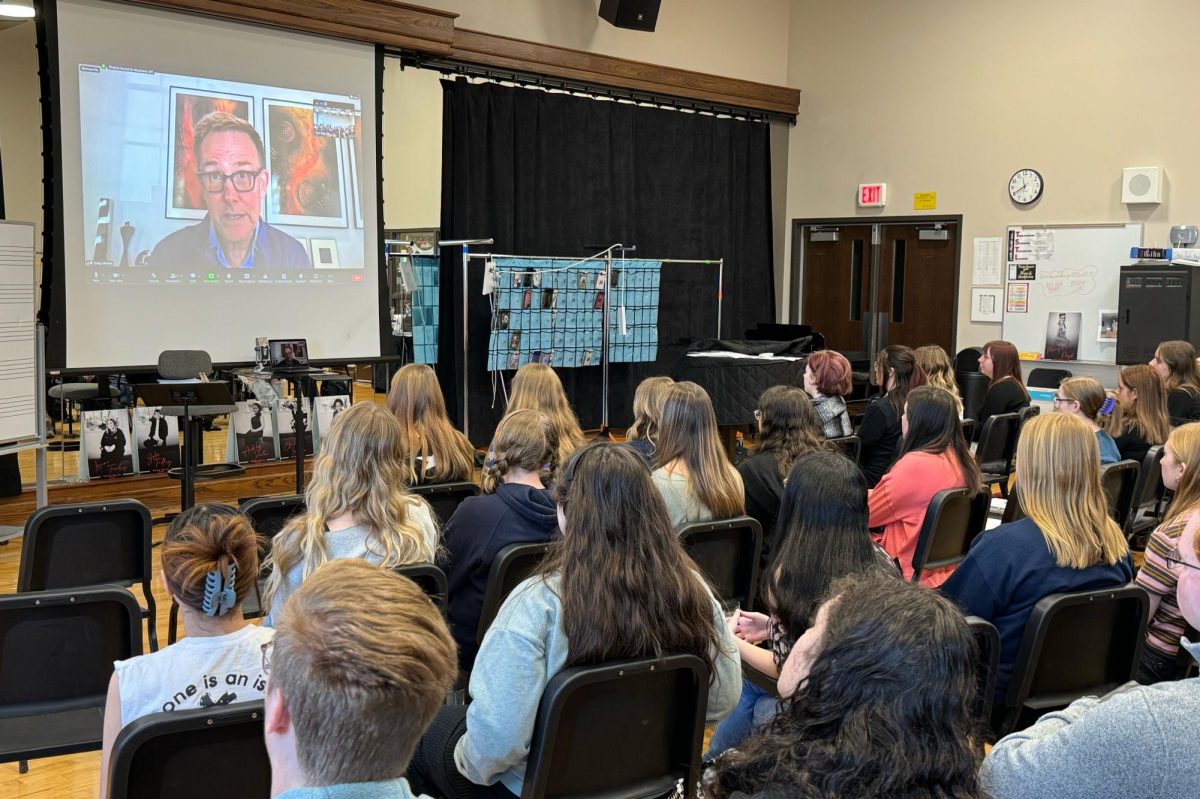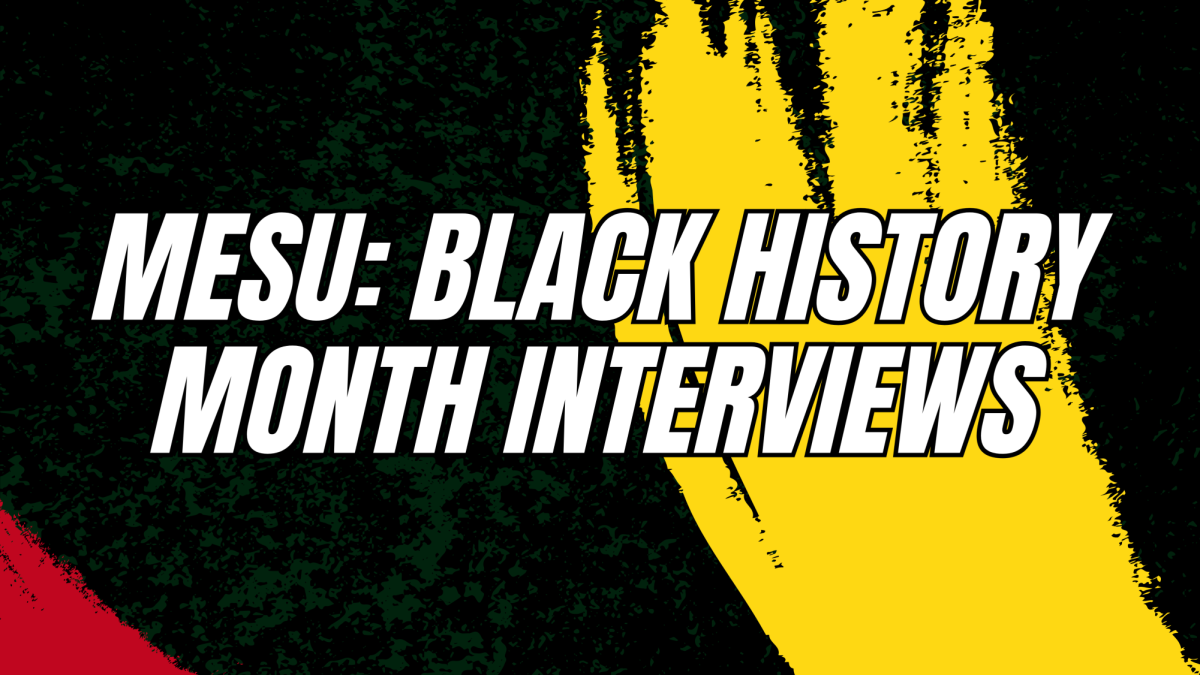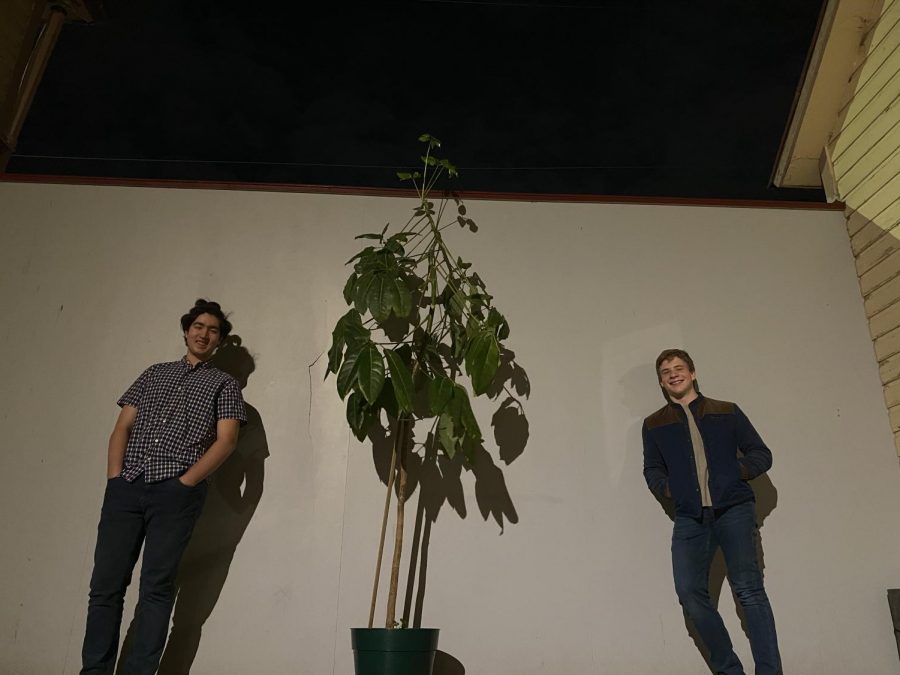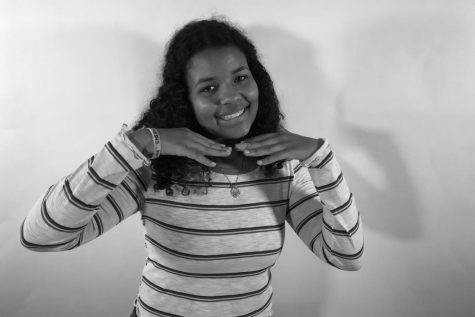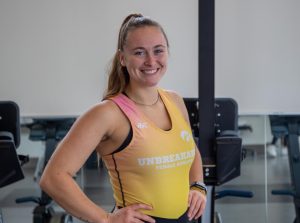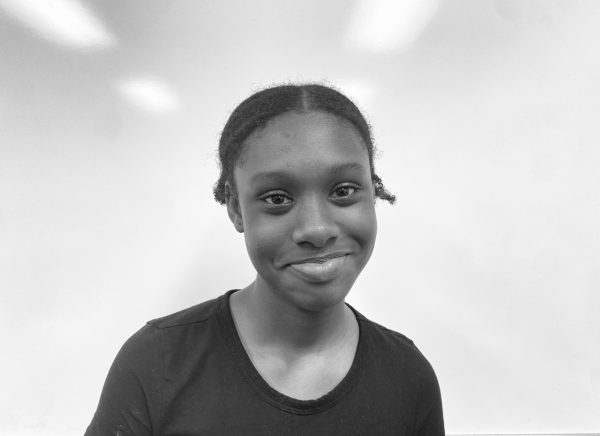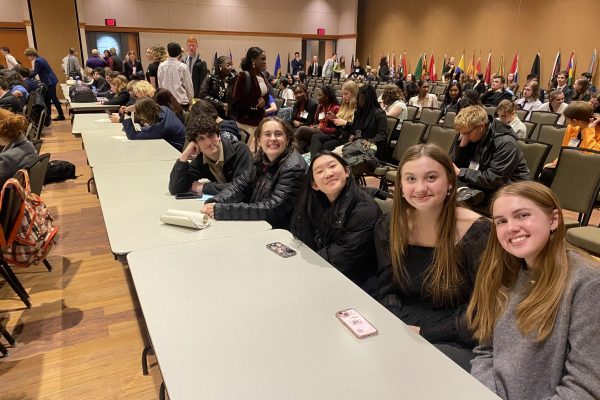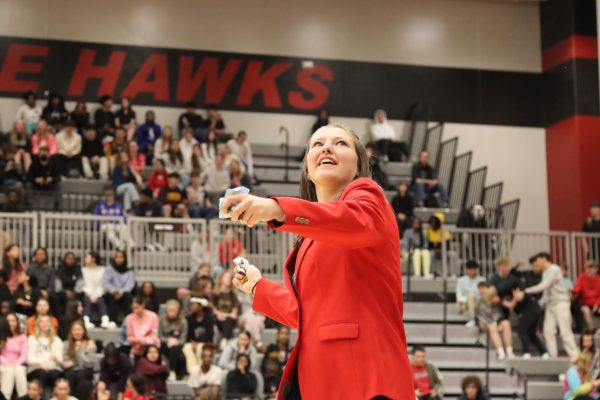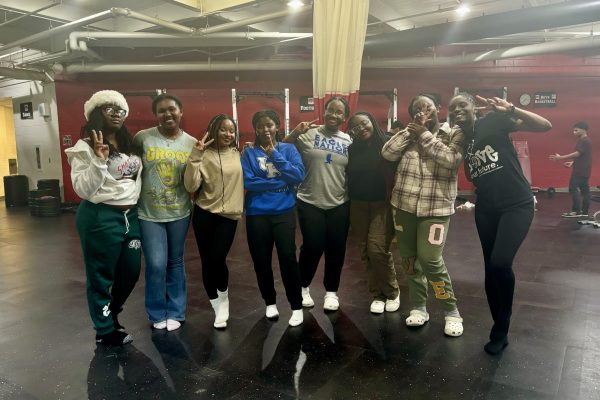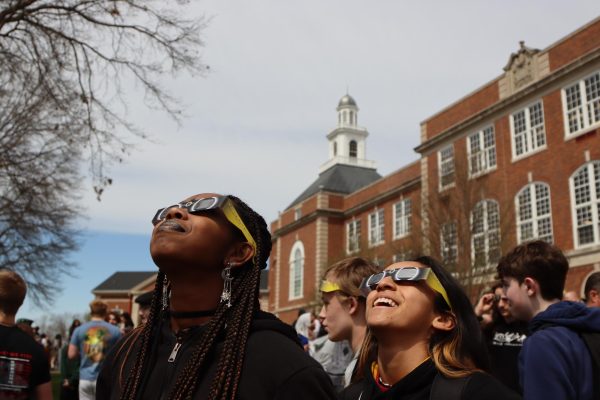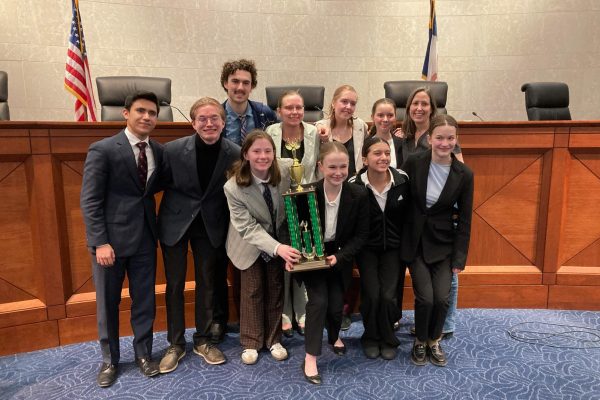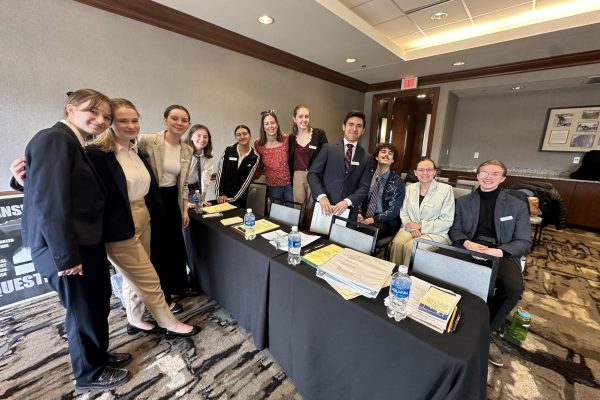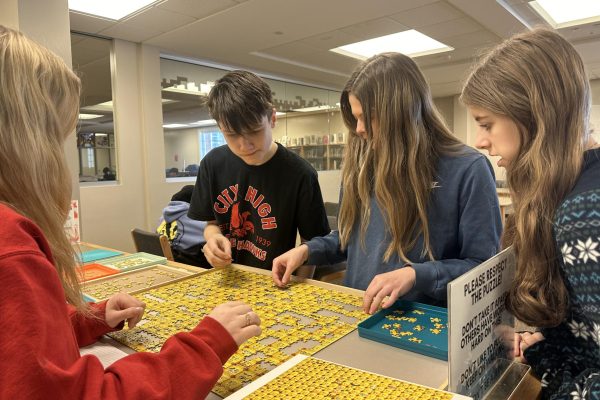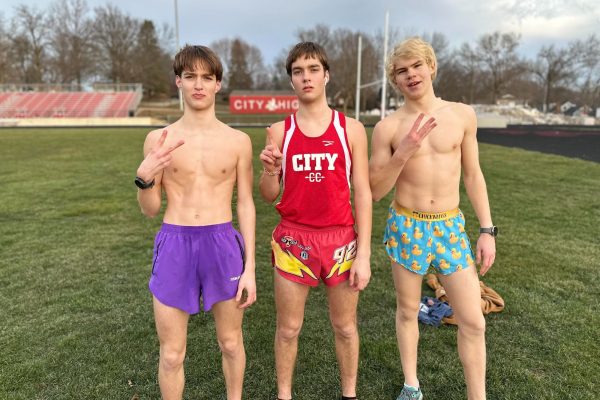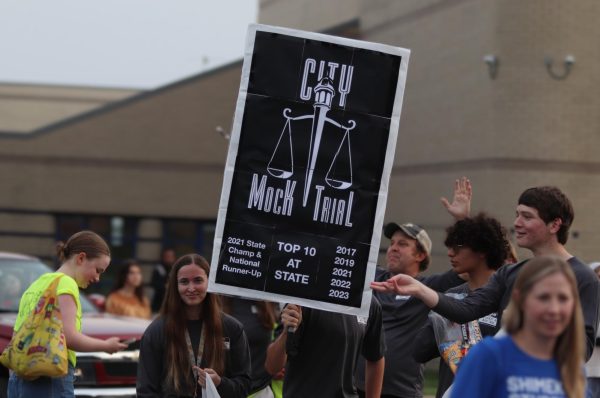A Late Election: Senior Class President Candidates
A look into the delayed senior class president and vice president race with candidates Tim Wildes and Kyden Hotka, Katherine Geerdes and Evan McElroy, Shoshie Hemley and Jesse Hausknecht-Brown, Jeremiah Collins and Oliver Bostian, and Wolfgang Fullenkamp and Lewis Meyers
October 1, 2020
Links to candidate speeches are here.
The abrupt ending to the 2019-2020 school year left a lot of things unfinished, including the race for Senior Class President. Now, while the student body is learning to adjust to many changes, like online classes, loss of traditions, and limited extracurricular activities; they are still without student representation.
“I’m sad about missing out on senior traditions but I understand the reasoning behind it,” Corrine Smith ‘21 said.
The senior class president and vice president are responsible for leading Student Senate meetings, giving speeches throughout the year, and attending school board meetings. Currently, there are four pairs running, all in the graduating class of 2021. Jeremiah Collins and Oliver Bostian, Shoshie Hemley and Jesse Hausknecht-Brown, Katherine Geerdes and Evan McElroy, Tim Wildes and Kyden Hotka.
“It’s obviously a crazy year [given the] circumstances and everything that’s going on in the world regarding COVID. But we think that the most important thing is keeping everyone safe,” presidential candidate Collins states. “I know a lot of people, when they couldn’t see anyone [during quarintine], were down on themselves. It’s hard to be alone. So we want to try to give students an outlet.”
If elected, Collins and his running mate Bostian plan to focus on reinstating as many senior activities as possible while doing it in a way that is safe and focuses on student mental health, including anti-racism policies.
“Our problem is the teachers and staff, not taking things seriously enough. Maybe training for the students and staff at City High to be able to spot racism or know how to handle it if someone comes to them,” Collins explains. “I feel like a lot of the time, the student comes to a teacher and tells them something and I’ve heard many stories about it just getting brushed off and that’s obviously not okay. We want our students to feel safe and to feel like they can talk to someone.”
To run for class president you must be a City High senior and have attended two-thirds of all Student Senate meetings to show your commitment and gain insight in student government. Because Student Senate was unable to host meetings during the third trimester of the previous year, the requirement was changed to a minimum of six meetings.
“I think as a pair, we fit very neatly into where the majority of people are. With our values and beliefs, I think we fit in the middle. We’re able to think for everyone,” Collins said.
Currently, any City High Student is able to attend and vote at Student Senate meetings. All candidates have stated they will keep meetings open to the school regardless of whether or not each grade elects representatives.
“It’s nice because we have freshmen, sophomores, juniors, and seniors. Anyone can immediately get involved and make an impact. So, I personally would like to keep it how it is because the people who come [to the meetings] are the people who want to make good decisions for the school,” Collins explains.
In the past, Student Senate has debated implementing a system that allows students to elect representatives for each grade. This is in hopes of solving the representation problem that was voiced last year and expressed for better representation of the student body.
“We feel that’s completely unfair to the people that don’t feel socially comfortable, waking up, getting out of bed, getting dressed, and immediately going to school to talk about things that we can improve,” Wildes said.
Wildes and Hotka are focused on improving mental health within the student body.
“There’s a social stigma [at City High] that if you don’t take Honors or AP, then you’re not smart or your one of the stupid kids. We feel that it’s just so stigmatized and just so overwhelmingly, beaten, almost even from junior high, that if we don’t take those classes, then you won’t be as successful,” Wildes explains. “It’s unfair to the students that feel like they’re forced to take these classes because they’re completely overwhelmed.”
To combat these issues they plan to host a listening post and weekly meetings pertaining to mental health. The two also stated they will work on reteaching methods to combat racism and bullying.
“[We need] to make it an issue that is within our very own school, and does not make it about the entire world because our main goal is to focus on City High, and not necessarily the entire country,” Hotka said. “So while there is a problem within our country that doesn’t necessarily mean within our school and so I feel like we need to readdress that be like ‘hey we love each other here.’”
They will also plan to continue senior traditions and add recycling bins throughout the campus in efforts to reduce the amount of litter. Between the two they are involved in Jazz Band, Business Professionals of America, and City High Athletics with the new addition of journalism.
“Our campaign is not only focused on student mental health but the growth of everybody at City High, and I feel like by educating individuals that may not understand something is incorrect, we can make a stronger City High,” Wildes said. “For example, if a teacher makes a sexist comment, we can have them sit in with Bacon and have big lessons. We can have them sit in on Student Senate meetings, and they can see the active role that women play in Student Senate.”
Other candidates, Hemley and Hausknecht-Brown are planning to take a different approach on handling student mental health.
“I think it’s hard to target mental health when we’re not targeting the underrepresented students. Those are the people who are often struggling because they aren’t getting the attention they need from their teachers [or] because they aren’t overachievers,” Hemley explains. “Those are the students who need more attention, not only for mental health but they tend to be people of color, LGBTQ identifying students. That’s why we are making anti-racism and pro-LGBTQ policy part of our agenda.”
The two both hold editor positions on The Little Hawk, were heavily involved with the climate strikes, participated in theater or athletics, and a variety of other activities including caucus club, and mock trial. The issues they are most passionate about include sustainability, anti-racism, and inclusion.
“I don’t mean inclusive in the sense that Student Senate is open to all but inclusive and diverse in the sense that we hear from LGBTQ students, students of color, students of all different gender identities, students of all different economic backgrounds, students from all different levels of course loads,” Hemely said.
They plan to do this by personally reaching out to different people, encouraging them to attend or being a liaison between clubs and organizations, incorporating their ideas during meetings.
“We actually have to go to the root of the problem in order to say. We are trying to help students’ mental health because it feels performative to say I care about your mental health but I’m not actually thinking about the issues that are being detrimental to your mental health,” Hemley stated.
Along with that, the pair plans to organize senior events based on feedback. Every campaign has announced that they will keep as many senior activities as possible, including rescheduling the paint fight.
“I also want to plan an event for seniors. I think it’s just going to be a big thing to reach out to seniors and see what they are interested in doing and how comfortable they feel with socially distant events,” Hausknecht-Brown said.
Candidates Geerdes and McElroy, on the other hand, have plans to start new clubs to replace the events canceled this year. They also have plans for a projector movie night on the football field.
“We kind of have to keep our hopes up,” Geerdes explains. “Ideas if not implemented this year, we want to set up for next year. I think a big problem with running for president is that it’s really easy to make empty promises. So you want to come up with specific solutions on how you’ll improve things.”
Aside from senior activities, they plan to implement a recycling system that ensures items go directly to the correct location.
“A lot of restaurants and places in Iowa City, their recycling stuff just goes straight to the trash. Even though it’s labeled as recycling. So I think making sure that we have an efficient way of actually recycling is important,” Geerdes said
Geerdes and McElroy participate in a variety of different clubs within City High including Cross Country, Track, TableTop RPG, Mock Trial, and the music department. Inspired by 2018 class president, Lottie Gidal ‘19, Geerdes decided to team up with McElroy in hopes of implementing her own ideas.
“We need to get to diversity training for the administration, they need to learn how to properly handle situations and properly handling situations doesn’t mean taking the students and the teacher to the principal’s office,” Geerdes states. “I think students are allowed to get away with little things and a lot of other students are spoken to condescendingly, and not like their concerns matter.”
While encouraging students to attend weekly meetings, Geerdes also plans to find an alternative way to broadcast the news to the student body.
“It’s important to find alternative ways to get the information out. Even if [students] can’t come to the meetings. Just so they know what’s happening, and they know why specific decisions were made because I think a lot of students find themselves confused with a big change,” Geerdes said.
To vote, all seniors will receive a form on October 2 via email. Final results will come out after voting ends on Friday.





